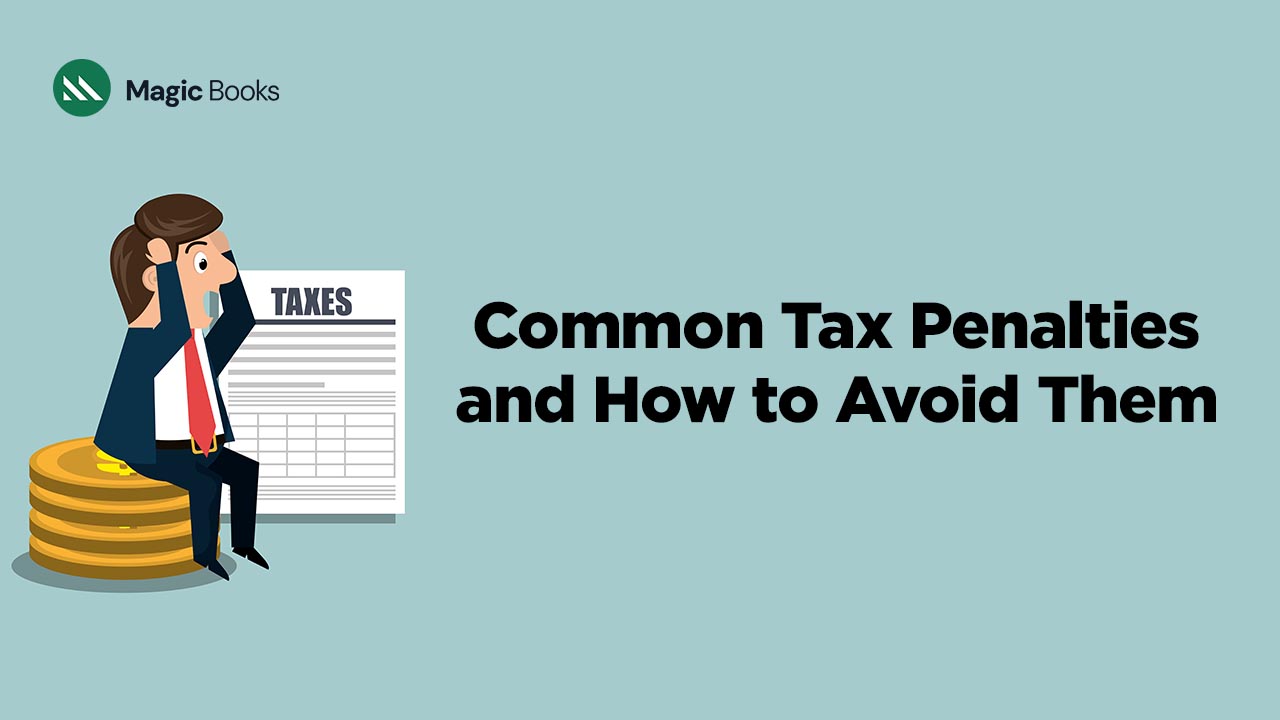If you’re a small business owner, then the act of being in your company means self-funding in nearly every respect. That includes doing your books. If you are a warden with just a few employees or even a hair-raising contractor in the gig economy, it is important that your small business does not sustain any damage at the hands of the IRS. If your small business is non-compliant regarding tax laws or the requirement to file taxes, a mistake of this nature is going to be a very costly offense. Here are the top seven most common tax mistakes small businesses make and the related penalties the IRS can assess. You are a small business owner, aren’t you?
Try to find and avoid the tax pitfalls usually waiting for small businesses, and you can hire professionals if you don’t see a way out of them by yourself. Common causes for IRS penalties usually are mistakes, missed deadlines, or non-compliance.
Here are some of the common reasons for penalties:
- Not filing personal, corporate, or payroll tax returns on time.
- Not paying tax due on or before the due date even though the tax return has been filed.
- False reporting of income or expenses on tax returns. Underpaying taxes throughout the whole year (especially applicable to the self-employed)
- It is because of unsettled payroll taxes that a small business can face significant problems.
- IRS Wage and Pay Compensation Penalty Types
1. Reclassification of distributions & penalties/Interest on back taxes:
If the IRS determines that the owner(s) [a.k.a. officers in an S corporation] or employees received unreasonably low pay, it can reclassify distributions as salary or wages. The company and the individuals will be liable for paying back payroll taxes [e.g., income, FICA, and unemployment taxes].
If the IRS finds out that you underreported your compensation and underpaid your taxes, you may also be liable to pay them back in penalties and interest, which can be very high. These potentially large penalties are more than any tax savings you may realize.
2. Employment tax penalty – failure to pay:
Let’s say you or your employees are paid a decent wage but you don’t withhold and pay employment taxes. Yep, this is another huge area where employers might get dinged.
Your business is required to withhold payroll taxes from the employees’ wages so you do not get slammed with the Trust Fund Recovery Penalty or TFRP. You are holding the funds in trust until you make the monthly payment to the IRS.
The TFRP applies to any owner or employee who “willfully” underreports or underpays their employment taxes. According to the IRS, “The amount of the penalty is equal to the unpaid balance of the trust fund tax.”
Bottom line: Put in a proper payroll management process and have a reliable provider!
3. Accuracy-related penalty:
Don’t let ignorance or forgotten income cost you. That’s what will happen if the IRS decides you reported unreasonably low compensation and underpay your taxes—in which case, you could get hit with a fine of 20% of the underpayment amount.
The IRS can assess this penalty for the substantial understatement of income tax or negligence, such as not having the documentation to prove you are entitled to the credits or deductions you report or not checking to ensure the accuracy of that credit or deduction.
A penalty of that size could cause serious, even irreparable harm to your small business. Maintain good records and whenever possible, work with a tax professional to ensure your taxes are reported accurately.
4. Revoked S corporation status:
Let’s say the IRS determines you and the other shareholders have routinely underpaid yourselves and taken distributions while conducting substantial duties for the S corporation. Then you might be facing more than merely tax penalties—your business could lose its S corp status.
Otherwise stated, you’ll have long-term implications to consider, for your company shall be treated like a C corp. Putting it another way, the business would be subject to double taxation—meaning, income is taxed both on the corporate and shareholder levels.
As an S corp, it is necessary to establish all the shareholders as W-2 employees, pay them reasonable compensation, and make sure they do their own reporting and payment of individual taxes correctly.
5. Failure to file & failure to pay penalties:
These are two separate penalties, but they go hand in hand and you should consider them as such. And they’re pretty cut-and-dried go ahead and get your taxes filed and paid promptly!
You will be assessed a 5% monthly penalty on the unpaid tax if you do not file your taxes on time until you pay it off—up to a maximum penalty of 25%.
And if you don’t pay, the monthly penalty will then be 0.5% of the unpaid tax. You can set up a payment plan to drop this to 0.25%. On the other hand, the penalty might shoot up to 1% if you fail to pay within 10 days after getting an IRS notice of levy. In all, note that the penalty could reach 25%—so pay as soon as possible to avoid increases.
6. Estimated tax underpayment penalty:
Last but not least, the self-employed MUST pay their quarterly estimated taxes. This is one many new (and even some experienced) business owners slip up on. According to the IRS, you have to pay 90% of what you’ll owe for the taxable year. You’ll be subject to this tax penalty if you don’t pay enough on your estimated taxes or if you pay late.
You also avoid the IRS penalty for underpayment of estimated tax if you pay 100% of the tax shown on your return for the prior year in four equal quarterly installments.
7. Legal repercussions:
While it may not technically be a penalty, there is a huge financial and reputational risk for your business in being brought into tax court. Multiple lawsuits or disagreements from shareholders may be brought against your business if your compensating practices were deemed unethical or illegal against tax laws.
Not only will you be charged for the IRS penalties, you’ll also have to compensate your attorney and likely pay additional fines or settlement of some sort. The very same kinds of wage payment and tax miscalculations we’ve been exploring trigger lawsuits, such as understating – or maybe even overstating – the workers’ compensation, along with failing to pay the required employment taxes and committing other bad practices, such as misclassifying employees in an effort to skirt having to pay payroll taxes for those workers.
Avoiding IRS Penalties: Some Tips
Getting hit with penalties from the IRS is no fun. But the good news is you can usually avoid extra fees if you’re careful about deadlines and details when filing taxes. Here’s some advice on how to steer clear of penalties:
File On Time:
This one is obvious but worth repeating – file your federal, state, AND local tax returns by the deadline. Tax prep software helps get everything done on schedule and and ask for an extension if you know you’ll blow the deadline. Just remember you still gotta pay up by April 15!
We put all key dates in my calendar and set reminders because I’ve totally blanked before. The IRS doesn’t care if you just space it, so you try to stay on top of due dates now.
Submit Accurate Info:
Getting your numbers right matters big time too. The IRS checks returns closely for errors which can lead to penalties. Using up-to-date tax software helps prevent mistakes.
And you organize paperwork throughout the year – donation receipts, 1099s, business expenses, etc. That makes tax time less stressful and more accurate!! The IRS website also lists ways taxpayers can avoid fees if you need more tips.
Proper Documentation and Record-Keeping:
Keeping your records accurate and organized will help you avoid accuracy-related penalties and make the tax filing process go smoothly. Here’s how to keep your records in order:
Organize Receipts and Invoices: Make a proper file of all receipts, invoices, and other financial papers from throughout the year. Go digital with the filing system to make record-keeping easier and make things accessible when needed.
Keep updating your financial statements: Your income statements, balance sheets, and cash flow statements should be updated regularly. The documents will present a true picture of your financial situation and will assist in filing a correct report of your expenses and income.
Separate Business and Personal Expenses: If you are a business owner, you have to separate your business and personal expenses. It can result in errors and even penalties if you combine them.
Paying Taxes on Time
You may as well pay your taxes promptly to avoid late-payment penalties. If you cannot afford to pay all at once by the deadline, there are some options for your consideration:
Set Up a Payment Plan: The IRS offers payment plans for taxpayers who can’t pay their taxes in full by the due date. You can avoid more penalties and interest by setting up a payment plan.
Pay What You Can: Even if you can’t pay the full amount, paying what you can by the due date may reduce the amount of interest and penalties charged.
Explore Financing Options: Some taxpayers may find it helpful to explore financing options, such as a loan, in paying their tax bill. Compare the costs of financing with the potential penalties and interest from the IRS.
Estimated Tax Payments for Self-Employed Individuals
If you are self-employed or have income that isn’t subject to withholding, you generally must make estimated tax payments quarterly. To avoid the penalty for underpayment, you can follow these guidelines:
Pay what is due accurately by filling out Form 1040-ES to calculate the estimate in your tax payment. Use last year’s return, but adjust it if necessary for any income increases/decreases and all new deductions.
Pay on Time: Estimated tax payments are due on April 15, June 15, September 15, and January 15 of the following year. If you miss these deadlines, you could be charged penalties, even if you later pay your taxes in full.
Adjust Payments as Necessary: If your income is irregular during the year, adjust your estimated tax payments accordingly. This will help you avoid underpaying taxes, which could lead to penalties.
How to Contest or Mitigate IRS Penalties
If you’ve already been slapped with a penalty, not all is lost. The IRS does allow contesting and reductions of penalties in certain circumstances. Here’s how:
Request an Abatement of Penalty: You can request a first-time penalty abatement if you have a clean filing history and haven’t had a penalty in the last three years.
Show Reasonable Cause: You may be able to get the IRS to waive the penalty if you can show that your failure to file or pay was due to reasonable cause, such as illness, a natural disaster, or an unavoidable absence.
Offer in Compromise: If you have serious financial difficulties and can’t pay your tax bill in full, you might be able to settle with the IRS for less than you owe by submitting an Offer in Compromise.
Seek Professional Help: Sometimes, more complex tax issues result in penalties. A tax pro can help you understand the options available to you, along with ways in which you might reduce or defend against the penalties.



